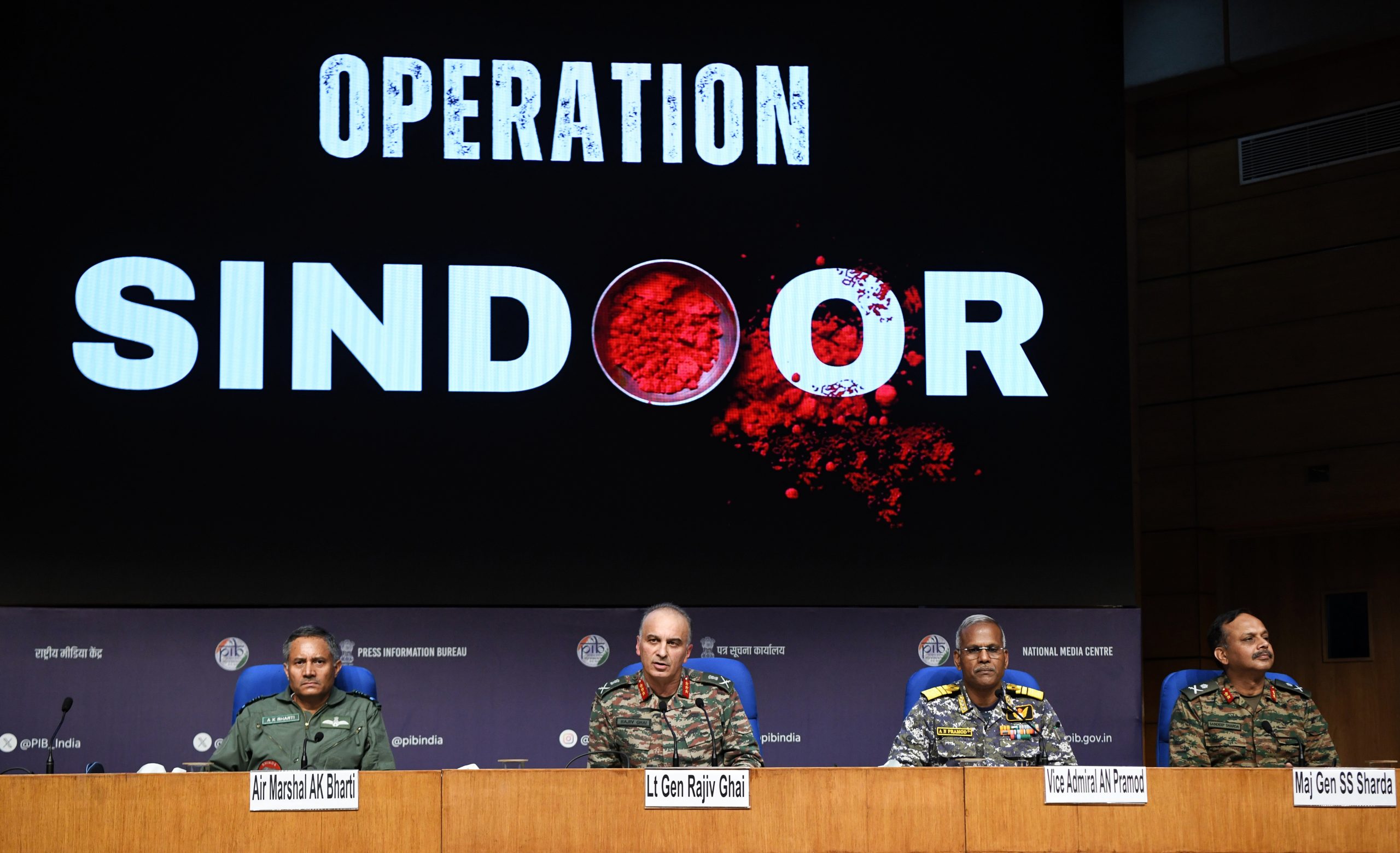In the wake of the tragic terrorist attack in Pahalgam on April 22, which claimed the lives of 26 innocent civilians, India has mounted a decisive and strategic response aimed at dismantling cross-border terrorism. The attack, which drew widespread condemnation and grief across the country, prompted immediate and firm action by the Government of India, with the Cabinet Committee on Security (CCS) approving a range of diplomatic and military measures targeting Pakistan’s continued support for terrorism.
Among the key diplomatic actions taken, India placed the Indus Waters Treaty of 1960 in abeyance until Pakistan verifiably ceases its support for cross-border terror activities. The Integrated Check Post at Attari was closed, and Pakistani nationals were barred from entering India under the SAARC Visa Exemption Scheme. Defence, Naval, and Air Advisors posted at the Pakistani High Commission in New Delhi were declared persona non grata, while the strength of both High Commissions was halved from 55 to 30 personnel.
As part of a precise military strategy, India launched “Operation Sindoor,” a calibrated campaign designed to neutralize key terror camps across the border. Based on multi-agency intelligence, nine significant terror infrastructure sites, including those in Bahawalpur and Muridke, were identified and targeted through coordinated air and ground strikes. The operation was executed with high operational ethics, focusing exclusively on terrorist camps while taking all precautions to prevent civilian casualties.
Indian strikes successfully eliminated more than 100 terrorists and destroyed 11 air bases within Pakistan. Among those neutralized were high-value individuals linked to the 1999 IC-814 hijacking and the 2019 Pulwama terror attack, including Yusuf Azhar, Abdul Malik Rauf, and Mudassir Ahmad.
The strikes marked a shift in India’s strategy by targeting deep into Pakistani territory, including critical radar installations in Lahore and Gurjanwala. Additionally, coordinated missile attacks were carried out on terror hubs in Pakistan-occupied Kashmir (PoK), including Muzaffarabad and Kotli. Military bases housing Pakistan’s F-16 and JF-17 fighter jets at Sargodha and Bholari were hit, leading to the destruction of nearly 20 percent of Pakistan’s air force infrastructure.
India’s retaliatory operations were launched in response to not only the Pahalgam attack but also subsequent Pakistani provocations, including drone and missile attacks on Indian civilian and religious areas on the nights of May 7, 8, and 9. Indian forces successfully intercepted and neutralized these threats, reinforcing the country’s operational readiness and commitment to defending its sovereignty.
In a televised address on May 12, Prime Minister Narendra Modi underscored the resolve behind Operation Sindoor, calling it not just a military campaign but a reflection of the collective sentiment of the Indian people. He reiterated that terrorism would be met with decisive force, rejecting any possibility of dialogue or trade with Pakistan until terrorism is addressed. He stated unequivocally that water and blood cannot flow together and emphasized that the only issue India is willing to discuss is the return of Pakistan-occupied Kashmir.
As Pakistani forces continued mortar shelling across the Line of Control (LoC), India responded forcefully, targeting terrorist bunkers and Pakistani army positions. Unable to withstand the Indian response, Pakistan sought a ceasefire, with its Director General of Military Operations contacting his Indian counterpart. A ceasefire was declared on May 10, but Pakistan violated it soon after, sending drones into Indian territory, which were swiftly countered by Indian forces.
Despite the ceasefire at the borders, Operation Sindoor remains ongoing. The Indian Armed Forces remain on high alert to counter any future threats, with field commanders granted operational freedom to respond to provocations.
India’s robust and restrained response has garnered wide support from the international community. World powers have condemned the Pahalgam attack and endorsed India’s right to self-defense. The United Kingdom, Russia, Israel, the United States, France, Japan, and key Gulf countries including Saudi Arabia, the UAE, and Qatar expressed solidarity with India. European Union member states, Sri Lanka, the Maldives, Panama, and even Palestine joined the chorus of condemnation.
Each expressed their support for India’s fight against terrorism, with many recognizing Operation Sindoor as a legitimate and proportionate response. Iran’s President personally conveyed condolences to Prime Minister Modi, and global leaders have emphasized the need for stronger international cooperation to combat terrorism.










